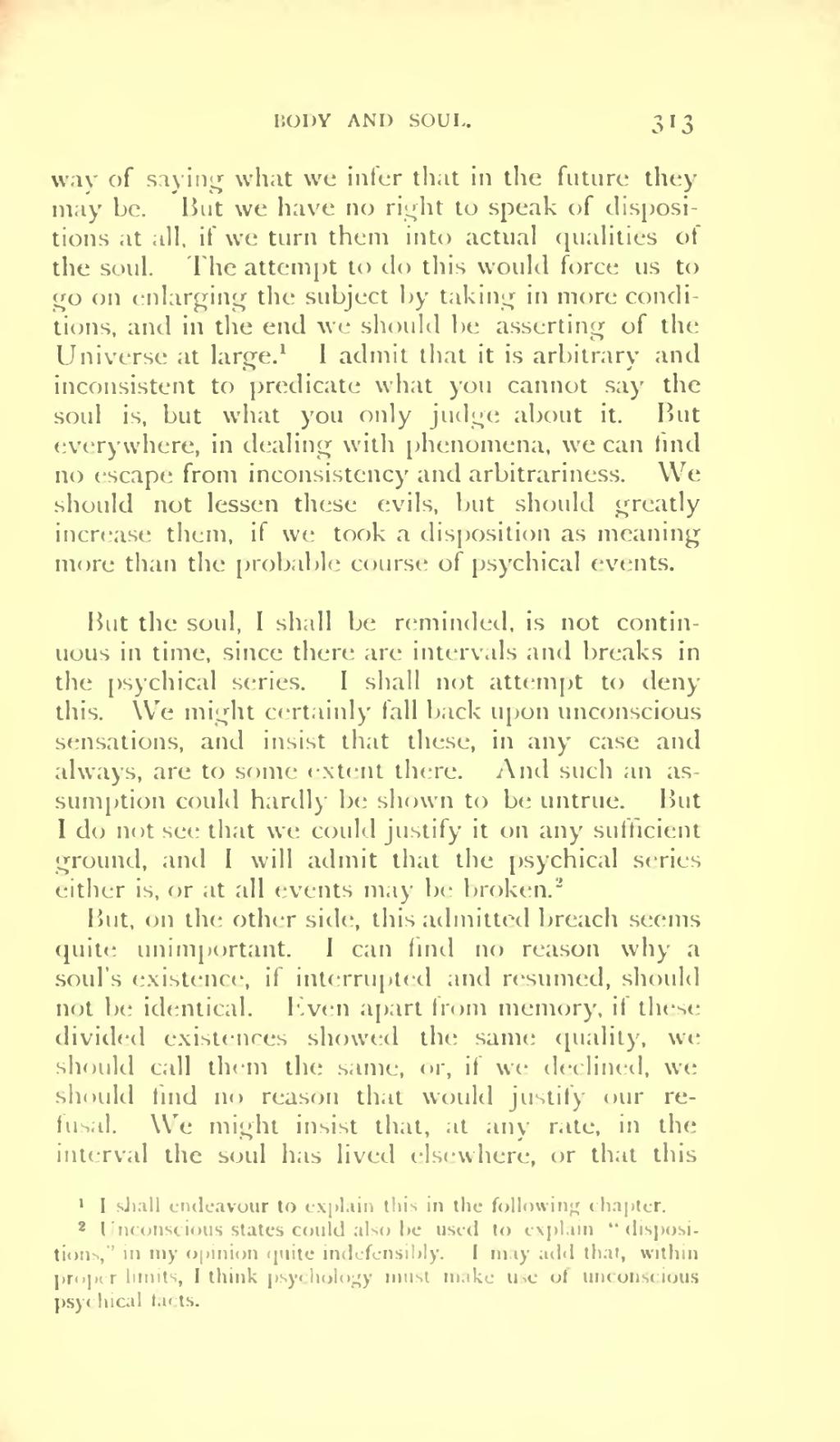way of saying what we infer that in the future they may be. But we have no right to speak of dispositions at all, if we turn them into actual qualities of the soul. The attempt to do this would force us to go on enlarging the subject by taking in more conditions, and in the end we should be asserting of the Universe at large.[1] I admit that it is arbitrary and inconsistent to predicate what you cannot say the soul is, but what you only judge about it. But everywhere, in dealing with phenomena, we can find no escape from inconsistency and arbitrariness. We should not lessen these evils, but should greatly increase them, if we took a disposition as meaning more than the probable course of psychical events.
But the soul, I shall be reminded, is not continuous in time, since there are intervals and breaks in the psychical series. I shall not attempt to deny this. We might certainly fall back upon unconscious sensations, and insist that these, in any case and always, are to some extent there. And such an assumption could hardly be shown to be untrue. But I do not see that we could justify it on any sufficient ground, and I will admit that the psychical series either is, or at all events may be broken.[2]
But, on the other side, this admitted breach seems quite unimportant. I can find no reason why a soul’s existence, if interrupted and resumed, should not be identical. Even apart from memory, if these divided existences showed the same quality, we should call them the same, or, if we declined, we should find no reason that would justify our refusal. We might insist that, at any rate, in the interval the soul has lived elsewhere, or that this

